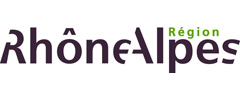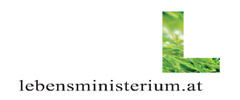Putting Gender on the Agenda of BMUB’s Festival of the Future
A weekend in Berlin celebrating 30 years of BMUB and a sustainable future with creative environmental strategies.
16.09.2016 |

The team in our booth at the BMUB festival. Photo credit: James Fancourt
Nearly a week has gone by since WECF visited the Festival of the Future, held by the German Ministry for the Environment, Nature Conservation, Building and Nuclear Safety (BMUB) in Berlin. The campus of the festival was filled with creative activities (volleyball field, graffiti, dried ice candy smashing for kids) and even compost toilets were put in place! At the festival NGOs, politicians, and the general public all gathered to come up with creative solutions to move forward together for a better environment.
Video description: Our Executive Director, Sascha Gabizon, being interviewed (at 1:20) by BMUB.
Our workshops
Besides having a booth we also held two lectures during the festival. One on “Hormonal substances: the invisible danger!” discussing chemicals, women, environment, and health. Looking specifically at pollutants, such as endocrine disruptors (EDCs), in everyday products and their impact on our health (and their disproportionate effect on women and children), and the environment. You can download a copy of our chemical expert Dr. Silvia Pleschka’s presentation here. The other presentation, held by our Munich Office Director Annemarie Mohr and Dr. Claudia Wendland, was on “Gender, energy, water and climate change” where we gave examples from our international projects, looking specifically at challenges and best practices.

Photo description: Regional Director Annemarie Mohr discussing energy projects in Georgia (Photo credit: James Fancourt)
Strong messages coming out of the international panel discussion
The Saturday’s panel consisted of Barbara Hendricks (German Federal Environment Minister), Carole Dieschbourg (Luxembourg Environment Minister), Anote Tong (former President of Kiribati), Mary Robinson (UN Special Envoy on El Niño and Climate), Joachim Schellnhuber (climate researcher), and Jennifer Morgan (Executive Director of Greenpeace International). During the discussions, issues of reducing human-induced climate change (that is currently causing the disappearances of pacific nations) and climate finance were seen as key solutions for a better future. The panel argued that climate justice is about taking responsibility of the damage you have done in other countries. Morgan also emphasised that we need to "rebalance the imbalanced power dynamics around the world ", while Robinson added that we need “a holistic approach to building resilience”.
Then what can we all do, on a personal level, to improve our future? Tong argued that we can change our lifestyles! Morgan added that we should learn to live with less stuff and focus our energy on more qualitative human relations instead.
How do we measure the success of the SDGs?

Photo description: SDG 5 and the festival goers’ indicators (Photo credit: James Fancourt)
Whereas we noticed that there is quite some work left to be done to raise awareness about the SDGs in Germany; we did have a tremendously positive response from the festival goers in helping us draft indicators. For SDG 5, on gender equality, we received suggestions as to measure the unpaid time spent on household chores (by gender); the percentage of women in STEM subjects; and the number of women and LGBTQI individuals in Parliament and leadership positions. Others wanted to measure the number of public toilets available for women and men (on SDG6: water & sanitation); intensity of smiles (on SDG 3: good health & wellbeing); meat consumption by gender (on SDG 13: climate action). A few also raised the issue of how do we make sure that the SDGs are culturally sensitive, and how do we measure that they in fact are?



Photo description: The German Secretary of State Jochen Flasbarth, also visited our booth and wrote an indicator reiterating that if the 2030 Agenda is to be successful, then SDG5 must be integrated into all SDGs! (Photo credit: James Fancourt)
You can find more indicators on twitter with the hashtag: #wecfbmub
#wecfbmub TweetsRelated News
Meet the Winners of the Gender Just Climate Solutions Award at COP24
On the 70th anniversary of the Universal Declaration of Human Rights, we awarded Gender Just Climate Solutions Winners at the climate negotiations in Katowice, Poland
11.12.2018
A life without plastic, wouldn't it be fantastic?!
Interview with Charlotte Schueler of @PlastikfreiLeben, who lives a zerowaste life in Munich, Germany and shares her experiences to her 25.2 thousand followers on instagram & 37.2 thousand followers on facebook
14.09.2018
What to expect from the climate talks that resumed in Bangkok this week?
COP24: second intersession of the climate change negotiations 2018, Bangkok, Thailand
07.09.2018
Calling for periods free from plastic & hazardous chemicals
Letter to Frédérique Ries, MEP, European Parliament on behalf of the #BreakFreeFromPlastics movement
04.09.2018





































